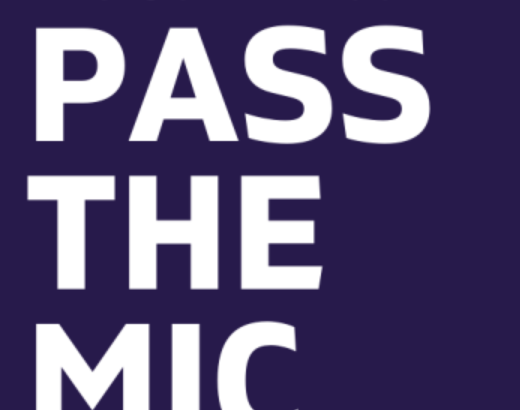On October 23 2024, “Pass the Mic” invited everyone into a space full of real emotions, honesty, and a bit of magic. Hosted by the Hopwood Program, this yearly event brought students from all over the University of Michigan to share their writing—poems, stories, and essays.
Throughout the night, we heard all kinds of stories, each one reflecting the writer’s unique life and feelings. There were poems about deep loss, struggles with mental health, and even the simple sweetness of peaches and plums. Listening felt like getting a glimpse into each person’s world, as they opened up and shared real pieces of their lives.
From the Dearborn campus, Vincent Intrieri shared a powerful story about his own life experiences. From open-heart surgery, his time in the Navy, and moments in a hospital room with his girlfriend and nephew, he crafted his life into lines that made up his living. His words felt raw and genuine. “Living felt worth it again and I eventually found my voice,” he said. For him, that was his way to heal and reclaim his story. We were right there with him, almost reliving it.
Then, a poet from the Flint campus shared a love story in a different kind of way. Peaches and Plums, it was called. Each stage of the relationship was tied to the stages of eating a peach or a plum—like the sweetness of a peach when you first bite into it to the tartness of a plum halfway—capturing the ups and downs of love. The poem ended on a bittersweet note, capturing love’s simple but complicated beauty. While the author explained they did end up staying friends, a love story is a love story, even if it’s between friends. It was like “unraveling a love story through the sweetness and messiness of fruit.”
Finally, from Ann Arbor, another author shared a piece about loss and nature. Their words felt like a quiet tribute, with landscapes that mirrored their sadness. “I rest my head on the hook of your neck mother.” You could feel the weight of the words the more they spoke. The poem felt dreamy and light, as if they were letting nature carry their grief. Losing someone is a natural process, and the poem was a gentle reminder that it would all be okay. Trees grow back!
By the end of the night, I felt like I’d been part of something special. “Pass the Mic” was more than just an event; it was a space for people to share their stories and connect. Each voice mattered, and each story—no matter how different—was heard. It was a night to remember.




